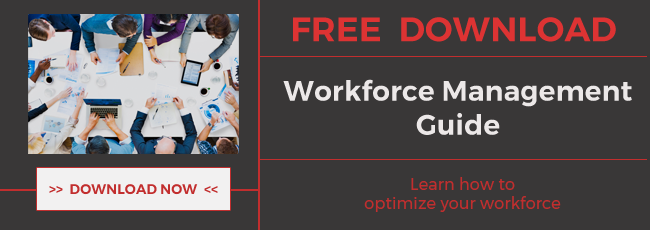California employers, like all US employers, must provide meal breaks for their workers. Typically, these breaks are straightforward with a lunch break each workday. But some industries demand more complex meal break requirements.

One of these industries is healthcare. A common aspect of working as healthcare employees are shifts that last 12 hours or more. While this usually requires that employers provide two meal breaks during that time, waivers are an option. However, this became problematic when a lawsuit, Gerard, et al. v. Orange Coast Memorial Medical Center, was filed in August 2008. The original suit alleged several wage-hour claims, including meal periods.
The lawsuit has been fought for over ten years with the plaintiffs challenging the trial court's initial rulings with an appeal based on the meal period regulations contained in section 11 of the California Industrial Welfare Commission’s Wage Order 5. Their contention was that the meal period waiver regulation for healthcare employees differed from the California Labor Code and should be considered as invalid. Eventually, the case went before the California Supreme Court.
On December 10, 2018, the Supreme Court delivered a unanimous decision that affirmed the earlier Court of Appeal ruling that voluntary meal period waivers are permissible for healthcare employees who work long shifts. This applies even for shifts more than 12 hours.
The Gerard case is the only wage-hour victory for an employer before the California Supreme Court in 2018.
The state Supreme Court’s decision is significant for healthcare employers and employees in California as healthcare employers can continue to use voluntary meal period waivers for healthcare employees, even for shifts over 12 hours. In addition, employees can choose to be scheduled for 12 ½ hours with one 30-minute meal period, rather than 13 hours with two 30-minute meal periods.
Requirements for Meal Breaks in California
California employers must provide a meal break of at least 30 minutes for employees who work more than five hours in the day. The meal period must begin before, or at, the end of a worker’s fifth hour of work. A second meal period must be provided If an employee works more than 10 hours in the same day.
The number of meal breaks required for most employees depends on the length of their shifts:
- An employee who works five hours or less is not entitled to a meal break.
- An employee who works more than five hours is entitled to one 30-minute meal break.
- An employee who works more than ten hours is entitled to a second 30-minute meal break
Also, employers are not required to pay for meal periods and employees are encouraged to clock in and out for all meal periods.
Employers must relieve employees of all duties curing meal breaks. In addition, they cannot regulate a worker's activities and must permit them a “reasonable opportunity” to take an uninterrupted 30-minute break.
And, while employers cannot not “impede or discourage” employees from taking a meal break, they are not required to ensure that no work is being done during those breaks. The employer is not, however, required to monitor meal breaks or prevent an employee from performing work during the meal break.
About Meal Break Waivers
As noted previously in this post, in some industries meal periods may be waived in certain limited situations:
- If the employee will work six hours or less in the day, and the employee and employer agree to waive the meal period; and
- If the employee works between 10 and 12 hours, the second meal period may be waived if the first meal period was not waived.
While there is no legal requirement that a California employer have a meal break waiver in writing, it is a good idea for employers to obtain a written waiver. Considering the Gerard case, using a written meal break waiver form can help employers protect themselves even though a verbal waiver agreement is sufficient. California employers can go to the CalChamber website to obtain a meal break waiver form.
Federal requirements are negligible so, in California, the state’s meal break law must serve to provide workers with time to both eat meals while working and to take reasonable breaks from their labor. In addition, under California law, both meal breaks and rest periods are considered measures to ensure that employees have reasonable working conditions.
HR Management Best Practices and California Labor Law
As a business owner, or HR or payroll manager, you have a number of options for your payroll functions. Software that can be installed in-house, or cloud-based programs offer a good alternative.
But if you really want to take full advantage of the benefits available to you, outsourcing to a provider like Accuchex can still be the best decision.
If you are considering outsourcing payroll, download our free resource, the Payroll Outsourcing Guide, to help you make an informed decision. Or call Accuchex Payroll Management Services at 877-422-2824.





